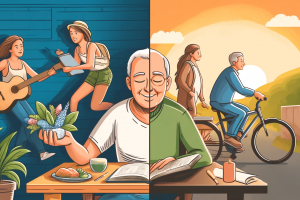As it is, the Supplemental Nutrition Assistance Program (snap) requires able-bodied adults without dependent kids to work or engage in job training, and restricts them to three months of benefits every three years if they cannot do so. But states can exempt adults in areas with high unemployment rates from that three-in-three rule. The proposed change would bar states from offering that exemption unless the local unemployment rate is more than 7 percent, The Washington Post reports, which would cut an estimated 800,000 people from the program and save the government an estimated $15 billion over a 10-year window.
Would the change get America’s unemployed poor back on the job? Perhaps on the margins. Studies show that work requirements can increase employment rates and do spur some workers to find a job faster. But they also show that those employment increases are often “modest, and [fade] over time.” Nor do the policies do much to reduce poverty or improve the longer-run employment situation of the people subject to them.
Many lower-income Americans face multiple arduous barriers to getting a job. They might have an undiagnosed disability, substance-use or mental-health issues, or a medical condition. They might struggle to find child care, or live in a remote area where work is hard to come by and transportation is expensive. They might have language or literacy challenges. The average income of snap recipients affected by Donald Trump’s proposed rule change falls at one-third of the poverty line, meaning just a few hundred dollars a month. For those individuals, destitution is often the main barrier to finding employment.
Nonprofit or government programs that help such adults with subsidized jobs, intensive work training, or education programs have proved successful. But the Trump administration has not offered to pair its punitive measure with increased funds for job training or government-funded jobs—nor are states generous in providing such services to snap participants.
“The administration may portray its proposal as a reasonable ‘work requirement,’” argues Robert Greenstein of the Center on Budget and Policy Priorities, a think tank based in Washington, D.C. But “most states don’t offer these people any job, training opportunity, or slot in a work program, and people who are ‘playing by the rules’ and looking hard for a job are cut off nonetheless. Moreover, the history of the three-month cut-off shows that some people who should qualify for an exemption from it because they suffer from a significant health condition often don’t get one.”
Cities are changing fast. Keep up with the CityLab Daily newsletter.
As a general point, a stingier and more punitive safety net is associated with more poverty—and not necessarily with more work. The United States’ labor-force participation rate among adults is lower than it is in many countries with far more generous safety nets, among them Finland, Norway, the Netherlands, Denmark, Switzerland, Sweden, New Zealand, Iceland, Canada, and Germany. And its poverty rates are higher.
What is certain is that the changes, if enacted, would punish many of those worst-off in the labor market. The proposal would “diminish food assistance for unemployed and underemployed people in areas with insufficient jobs, undo long-settled regulations, cynically attempt to end run Congress, and increase hunger and nutrition-related diseases,” argues Jim Weill, the president of the Food Research and Action Center.
This content was originally published here.
EL 2 DE JUNIO DEL 2024 VOTA PARA MANTENER
TU LIBERTAD, LA DEMOCRACIA Y EL RESPETO A LA CONSTITUCIÓN.
VOTA POR XÓCHITL












Comentarios